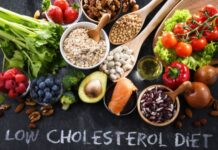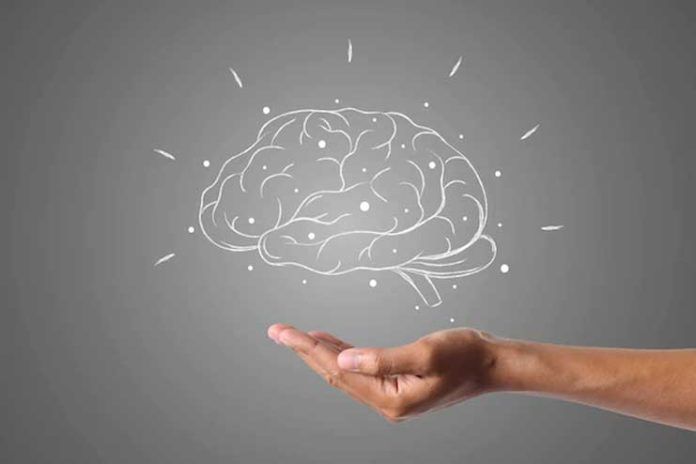Affiliate Disclaimer
Some links in this article are affiliate links. We may earn a small commission if you make a purchase through these links, at no extra cost to you. We only recommend products we find useful to our readersHealthy blood flow is optimal for brain function, it is essential for your overall health. Amongst your body, the brain requires the highest amount of energy. In fact, it is said that 60% of the glucose that your body burns every day goes directly to provide energy to your brain.
But consuming just natural glucose is better than others. That is why your brain needs more than just glucose or calories and carbohydrates, it needs specific vitamins and nutrients to add fuel to your body. The best way to add fuel is by consuming vitamins through your food.
When your brain gets the right vitamins, it helps to improve cognitive functions like protecting your brain health, help keep off memory loss, improving blood pressure, and reducing your risk for stroke and heart disease. To add more, these vitamins also fight depression, restrict brain aging and help you live a longer life.
So you might be thinking, what vitamins and minerals are good for the brain? Need not worry as I will be discussing all the vitamins that help to improve blood flow to your brain in this article. So keep reading for more.
List of vitamins that improve blood flow to the brain
Right vitamins, minerals, and nutrients directly have an impact on all of the brain’s health and functions, including main functions like learning, concentration, and emotional regulation which was reported by the Research (R) If you want to protect and look after your brain for a long-term, make sure you’re getting the minerals and vitamins good for the brain.
1. Vitamin D

Vitamin D is one of the best vitamins for brain health which is also popularly known. You can get this vitamin from a natural source and that is why it is referred to as the “sunshine vitamin” because most people get their vitamin D from sun exposure. But it is one of the common vitamin deficiencies that most people have as they are not aware of its benefits and many fear that too much sun exposure can be harmful to them as well. Although you can always get it from other sources and supplements as well which are prepared from the sun UV rays.
How vitamin D helps
- It supports overall mental health (R).
- It helps in the growth of cells and cell differentiation in the brain.
- It significantly reduces the risk of neurodegenerative diseases like Alzheimer’s and Parkinson’s (R).
- It helps in regulating the function of hundreds of genes, these genes are responsible for the process where they instructions to your body from the brain
- Vitamin D protects against cognitive decline (R).
2. Vitamin B- complex
There are overall eight B vitamins, which are all good for the functions of your brain and body. These vitamins are found mainly in foods like seafood, dairy products, grains, nuts, and seeds. Each B vitamin is responsible and important for the function of your brain, and they are commonly taken together in supplements for your brain health. There are Smart Supplements that give you all eight B vitamins in every dose.
How vitamin B-complex helps
- They help produce red blood cells.
- They play a role in nerve signaling.
- They support hormone and neurotransmitter production.
- They enhance cellular functioning at every level.
3. Vitamin B 12
Vitamin B 12 is one of the vitamins from the vitamin B family. There has been researching done by scientists between the relationship between low levels of B12 and memory loss. Although, even if you get the proper amount of vitamin B12, there is no proof that a higher intake of this vitamin has positive effects. One can be able to get enough vitamin B12 naturally, as it’s found in foods such as fish and poultry. For vegetarians, you may need to opt for Fortified breakfast cereal.
Many people also have a deficiency of vitamin B12 and this deficiency is most commonly found in people with bowel or stomach issues or people who are strict vegetarians. The risk of vitamin B12 deficiency also increases with age. Due to the increased frequency of low stomach acid in older people, this can happen. The diabetes drug metformin has also been shown to lower B12 levels. Also, anti-inflammatory medications like prednisone and birth control can help to lower vitamin B12 levels.
People who have low stomach acid may not be able to properly absorb B12 from food and they may need to consume a dietary supplement to maintain the level of vitamin B 12 in them.
How does Vitamin B12 help
Vitamin B12 boosts mental health and mood. Also for those who have depression, the benefits of B12 can help them fight it which was noted by the research (R).
Helps to reduce the symptoms of stress, such as feeling tension, experiencing mental confusion, or going through moments of emotional trauma and sadness.
By keeping your endocrine system and cortisol levels balanced, helps to reduce stress (R). Cortisol is a hormone that is responsible for stress in your body
Helps to enhance short and long-term memory, it can be because B-vitamins are necessary for healthy, oxygen-rich blood, which in turn boosts oxygen to the brain and helps it, this was noted by one of the studies (R)
Improves your mental energy that includes enhancing your focus and concentration.
4.Vitamin E
Vitamin E can benefit the mind and memory of older people which was suggested by some studies. Also, high amounts of vitamin E can help people who have been facing issues of mild to moderate Alzheimer’s disease, this was founded by the studies (R) done in 2014 by one of the journals. Too much of these vitamins can be harmful to your body and brain. Taking more than 400 IU a day is especially risky for people with cardiovascular disease, and for those on blood thinners. Some studies have also reported that supplements that have vitamin E in them may increase the risk of prostate cancer.
One should be able to get enough amounts of vitamin E from your food, regardless of your age or any condition. Your body consumes vitamin E from foods like nuts, seeds, vegetable oils, vegetables, such as spinach and broccoli. Vitamin E deficiency is rare, but it can result in people on low-fat diets. If you want to consume additional amounts of Vitamin E you must consult your doctor once.
How does vitamin E help
- It protects cells from damage caused due to oxidative stress caused by free radicals.
- Help to provide some relief from anxiousness, stress, and depression.
- Stress causes brain fog and this vitamin helps fight with it
- Vitamin E is an antioxidant that may slow aging
- Vitamin E is a nutrient that’s important to vision, reproduction, and the health of your blood, brain, and skin.
- Vitamin E may help protect neurons.
5.Vitamin B1
Vitamin B1 is also known as thiamin, or thiamine, it enables the body to use carbohydrates as energy. It is important for glucose metabolism, and it plays a key role in nerve, muscle, and heart function. Vitamin B1 is a vitamin of the B complex and is a water-soluble vitamin. Humans need a continuous supply of vitamin B1 because it is not stored in the body and that is why it should be part of the daily diet. They also play a role in the nervous system, and they are needed for good brain function. The B vitamins are also called anti-stress vitamins as they help to boost the body’s immune system in times of stress (R).
It is said that there are high concentrations of Vitamin B1 in the outer layers and germ of cereals which is good for vegetarians. Apart from this, it is also found in yeast, beef, pork, nuts, whole grains, and pulses. Fruit and vegetables that contain vitamin B1 include cauliflower, liver, oranges, eggs, potatoes, asparagus, and kale.
How does vitamin B1 help
- Helps to improve nerve pain in people with diabetes
- Improves memory and brain functions
- Taking vitamin B1 supplements along with an antidepressant is good for depression
- When glucose is mixed with vitamin B1, it converts into energy for your body to be used
- Helps to improve concentration and focus
6.Vitamin B9
Vitamin B9 also known as folic acid is important as it is responsible for proper brain function and plays an important role in mental and emotional health. It aids in the production of DNA and RNA, which is the body’s genetic material, and is especially important when cells and tissues are growing rapidly, during hormonal changes such as in infancy, adolescence, and pregnancy. Vitamin B9 also works closely with vitamin B12 to help make red blood cells and in the proper functioning of iron to work properly in the body.
Pregnant women need more folic acid to lower the risk of neural tube birth defects (R), and brain damage. Folic acid deficiency can cause poor growth, irritability, forgetfulness, mental sluggishness
How does vitamin B1 help
- Vitamin B9 is necessary for making DNA, neurotransmitters, and the proper formation of the nervous system during the development
- Help prevent dementia and boost the production of neurotransmitters
- Helps to improves cognitive scores and rebalances the markers of brain aging
- It helps to fight and in development of depression and anxiety disorders (R)
Conclusion
When it comes to the best vitamins for brain health, you may find many and they are all important. These vitamins help and promote brain health in many ways. Consuming this full spectrum of vitamins that are good for the brain by taking them regularly, is what’s going to make the difference in your brain health in the long run.
Along with this, there are many other vitamins, nutrients, and minerals that are necessary for the functioning of brain health. Hope this article has helped you to identify that and improve blood circulation by consuming these vitamins. Thank you for reading

















